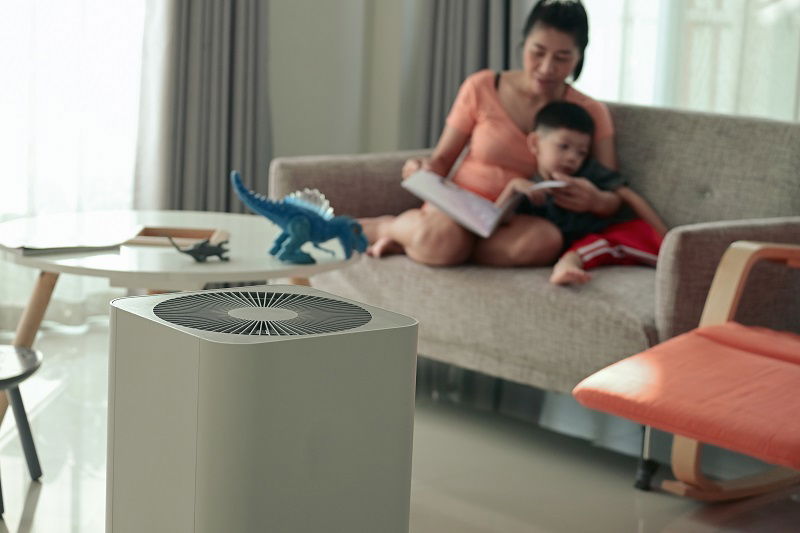If you’re like me, you check your weather app most days to check the outdoor air quality. This can determine how much time I spend outside and what activities I do. However, did you know that the air quality can be worse indoors than outdoors? This becomes very important in the winter when colder temperatures mean that people spend a lot more time inside.
How Indoor Air Quality Affects Allergies
Air pollution can happen indoors just as much as outdoors. Indoor air can contain allergens like dust, mold, and pet dander. New furniture and newly installed floors can release chemicals, while cooking sends oil and fat particulates into the air. Furnaces, wood-burning fires, and candles also release particles into the air. All of these allergens and pollutants can trigger allergy and asthma symptoms.
How to Improve Indoor Air Quality
One of the issues with indoor air quality is that the air recirculates, so allergens and pollutants are trapped inside the home. In warmer months, you can open the windows to allow clean outdoor air into the house, but this often isn’t possible during the winter due to colder weather. Here are a few other steps you can take to improve indoor air quality and reduce allergy and asthma symptoms:
In Your Bedroom:
- Keep pets out of your room.
- Wash sheets and bedding weekly.
- Use certified asthma- and allergy-friendly allergen barrier bedding.
- Don’t let wet or damp clothing build up.
- Cover your hair or shower at night to remove pollen.
- Vacuum floors and mattresses weekly.
- Remove scented candles and potpourri.
- Replace your mattress every 10 years, and pillows every 2 years.
- Air out new furniture in a different room.
- Use a certified air cleaner.
- If you have a connected bathroom:
- Fix leaks in the shower/bathtub, toilet, and sink.
- Clean the shower/bathtub and sinks regularly to prevent mold.
- Run a fan for at least 15-20 minutes after showering.
In Your Kitchen:
- Get rid of old produce before it grows mold.
- Fix leaks in the sink, refrigerator line, and dishwasher.
- Keep refrigerator door seals clean (where mold likes to grow).
- Don’t let dirty dishes pile up.
- Clean the vent hood and tops of cabinets often.
- Clean up spills and messes right away.
- Avoid storing chemical cleaners in the kitchen, or use natural (and unscented) cleaners like soap, water, and vinegar.
- Use a certified air cleaner.
- Use lids on trash cans.
- Avoid aerosol cleaning products.
- Cockroaches like to feed on food or water—be sure not to leave any out overnight to feed them. Put away your pet’s food and water bowls, too.
- Store food in airtight containers.
- If you have houseplants or potted herbs in the kitchen, only water them when the soil is dry to prevent mold.
In Your Living Room:
- Don’t use throw pillows, which are difficult to clean and can easily collect dust mites and pet dander.
- Hang blinds (which can be dusted often) instead of curtains, which can harbor dust mites and danger. If you choose curtains, choose ones that can be washed often.
- Choose leather or vinyl furniture.
- Clean up clutter.
- Use washable area rugs, and wash them weekly.
- Remove scented candles and potpourri.
- Use a certified air cleaner.
- Don’t use a wood-burning fireplace or smoke indoors.
- If possible, replace carpets with solid surface flooring with low VOCs (volatile organic compounds). If you cannot replace carpets, have them cleaned.
- Wash throw blankets weekly.
- Dust and vacuum weekly.
By following these simple steps, you can improve your indoor air quality. Doing so can reduce the likelihood of allergy and asthma symptoms. To learn more about indoor air quality and allergies, we invite you to contact West River ENT & Allergy today.




